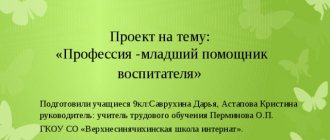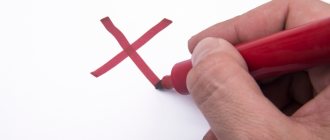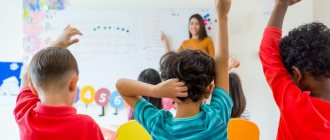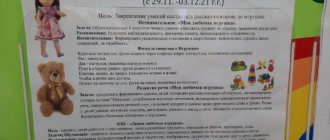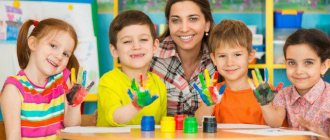Self-analysis and self-assessment of a teacher’s professional activity as a basis for planning
For an adequate assessment, the teacher will have to make a comparison between the planned results of his own activities and the real ones obtained during the process carried out in practice. At the same time, it should be noted which achievements of students are the result of talented events or a whole system of pedagogical techniques.
It is necessary to identify certain deficiencies, identify ways and methods for their improvement, and use new technologies and methods in your work:
- Research. Children put forward hypotheses, carry out observations, check the correctness of decisions. Development of generalization abilities leading to correct conclusions.
- Experimentation. Fulfilling the desire of preschoolers to independently find a solution to a non-standard situation.
- Integration. Development of a child’s personality through improving his creative and cognitive abilities.
The active activities of children's pupils are carried out under the strict guidance of the group leader using self-analysis and self-assessment of the teacher's professional activities.
Teachers use various forms of working with children. Greater efficiency was noted in excursions, educational and outdoor games, and experiments. An unbreakable connection with parents is possible using consultations and conversations. And also jointly organized holidays will improve the education of the future generation.
Self-report of teacher performance
Word games
: “It happens - it doesn’t happen”, “Name it in one word”, “Stand in place”, “Yesterday, today, tomorrow”, “We get to know the signs of objects with the help of riddles”, “Flies - doesn’t fly”, “Name your mother’s profession” , “Guess the profession”, etc.
Desktop-printed
: “Pick up objects”, “Generalization-exclusion”, “Count the birds”, “Find a pair”, “Professions”, etc.
All games are freely accessible to children.
For convenience, we have developed a card index of didactic games on cognitive development (for familiarization with the outside world, for the formation of environmental ideas). Thus, didactic games contribute to the development of cognitive activity of older preschoolers.
Games can be used for both group and individual work. These didactic games fit well into the classroom routine, consolidate the knowledge acquired by children, develop independent thinking, sensory abilities, activate speech development, and stimulate the development of curiosity.
A comparative analysis obtained from examining diagnostic data showed that the level of development of environmental knowledge and an environmentally correct attitude towards the natural world has increased. Children distinguish and name specific types of trees, berries, plants and animals, and know the features of their appearance. Name the main signs of inanimate nature, establish the simplest connections between them. They willingly respond to an adult’s offer to help a living person and strive to do good deeds.
During the process of educational development of cognitive development, children became more attentive. They listen and watch stories about animals and plants with interest, ask additional questions that interest them, enjoy playing educational games, and look at and study encyclopedias. During walks, the children began to show great interest in plants, the life of birds and insects. They began to show care and treat them more carefully.
However, there are children who find it difficult to master the material; cognitive and environmental materials are poorly developed. To achieve this, I carry out individual work, as well as work with parents.
5.
I continue to get acquainted with new documents on the regulatory framework and study the electronic version.
6.
The topic of self-education is
“Ecological education of preschool children through didactic play.”
The following methods were used to solve the problems:
– bibliographic (study of literary sources)
;
— empirical (observation, experiment)
;
— psychological and pedagogical (questioning)
;
-quantitative and qualitative analysis of the results obtained (diagnostics)
.
